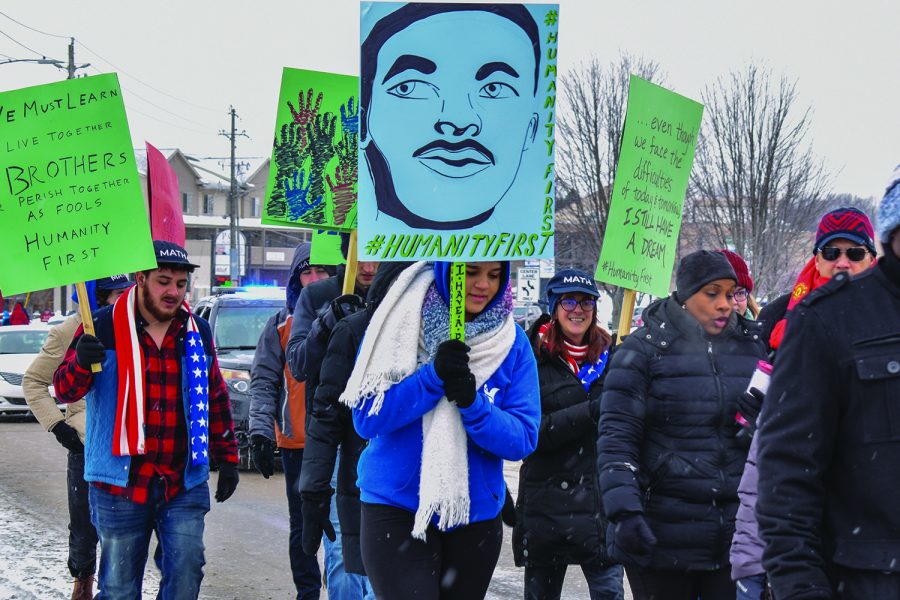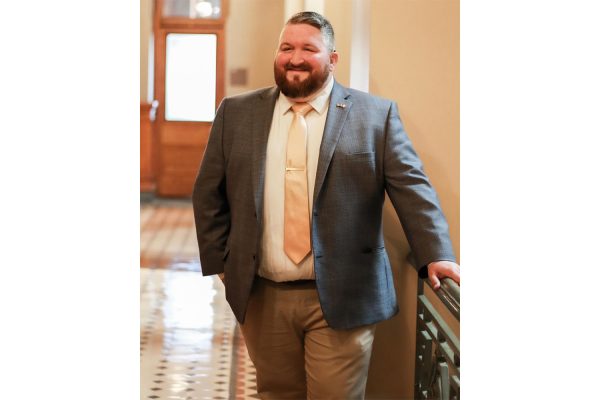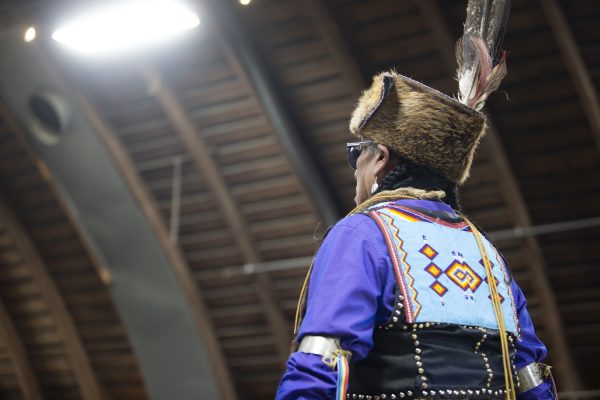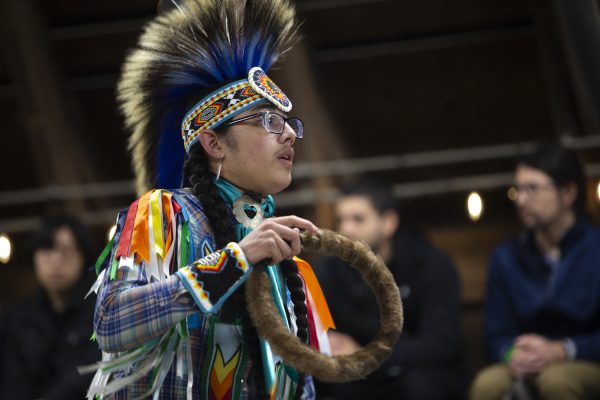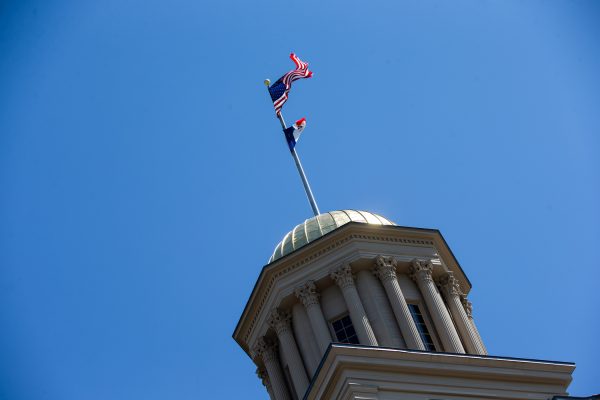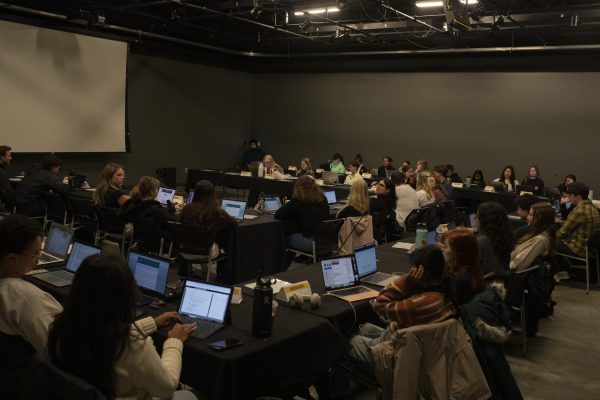University of Iowa celebrates 25 years of honoring Martin Luther King Jr.
The Iowa City community recognized civil rights leader Martin Luther King by commemorating 25 years of annual “Day of Service” events through volunteer activities.
Attendees are seen gathering together at the MLK Day of Service on Monday.
January 20, 2020
Bundled in coats and gloves and wielding signs emblazoned with quotes such as “I have a dream,” Iowa City locals participated in the 25th anniversary of the annual Martin Luther King Jr. Day of Service, a nationally recognized holiday to honor the life of the civil activist and leader.
Children and adults alike braved the snow and freezing temperatures on Monday to march down the streets of Iowa City in honor and remembrance of King.
The event kicked off MLK Jr. Celebration of Human Rights Week in Iowa City, which includes various lectures and activities to engage students and locals in the movement.
Iowa City Mayor Bruce Teague said the day of service is incredibly important in celebrating the life and King’s legacy.
“We do this through love, letting Iowa City know that all are welcome,” Teague said. “Spreading love was Martin Luther King’s vision and hope for peace.”
In 2012, the Iowa City City Council developed a city diversity committee to analyze various city departments and give recommendations on diversity issues. From this implementation, a Diversity Task force and Equity Director position were created.
Stefanie Bowers, current Iowa City equity director, said the holiday is a chance to remember and recognize those who have sacrificed their lives for the cause yet will never be represented in history books.
Bowers’ appointment as city equity director was developed following the creation of the Diversity Task Force and enforces Iowa City’s Human Rights Ordinance, which describes unlawful discrimination.
RELATED: Volunteers spend day off assembling literacy kits in honor of MLK
The theme for the 2020 march and service day, titled “Let us build bridges, not barriers,” aimed to remind everyone in the community that being together rather than apart is necessary to make change in society.
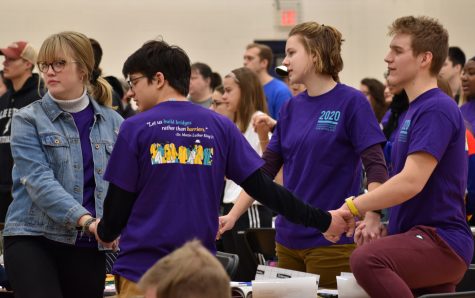
Attendees are seen gathering together at the MLK Day of Service on January the 20, 2020. Volunteers hold hands as the group sings “We Shall Overcome”. Volunteers manned stations with various activities for children.
Johnson County Supervisor Royceann Porter said the march showed “unity in the community” and support for everyone, not just those of a certain race or gender.
“Johnson County is making significant strides and if MLK were to look at us today, I can assure you that he would be proud,” Porter said. “Yet, this is only the beginning.”
Porter hopes to remind people why those participating did so, she said, and expand the movement even further in the future.
Along with the march, tables set up with activities and charitable opportunities offered many ways for people to honor King’s Day of Service.
Both the march and the service events mean a lot to the movement as an opportunity to honor King as well as the Iowa City community, Teague said.
University of Iowa junior Alyssa Schaeffer, event volunteer, said she is a big supporter of the community and thinks that it’s important to work with diverse groups of people and she encourages others to do so.
“Martin Luther King Jr. taught us about the importance of diversity and how to find ways to serve the community and the people around you in love,” Schaeffer said.
In 2015, Iowa City City Council approved an official Equity Action Plan and a specific five areas of focus that outlines a resolution to reduce racial and ethnic disproportionality in Iowa City’s services, programs, and operations.
Teague said he hopes to see an even bigger push for excellence and diversity in the Iowa City community in the new year, and beyond.
“2020 is the year of vision. This year’s vision is to make further strides toward the ideologies that Martin Luther King hoped for us,” Teague said. “My dream is that we would be able to talk about elected officials, and anyone, by their name not their race or their gender.”



